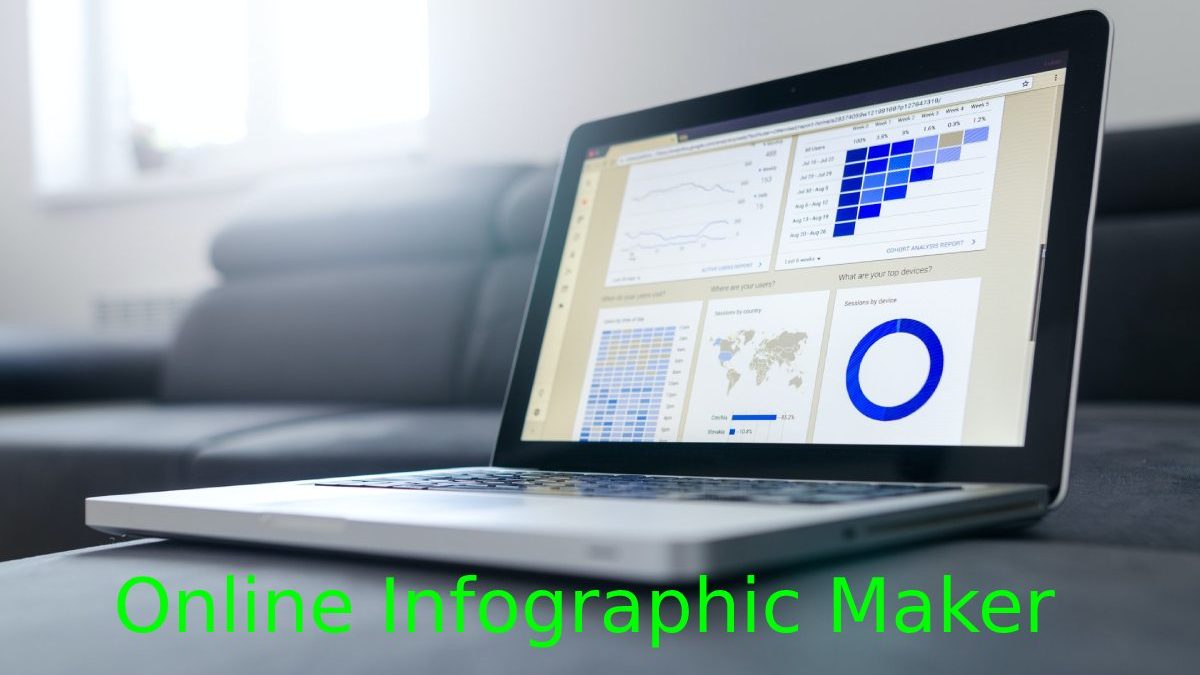Table of Contents
Introduction
Online Infographic Maker: Without any design skills, you can create great infographics. You may start with a blank canvas or an infographic template in Piktochart.
Create Beautiful Infographics
Whether you’re trying to explain a process, depict data, or examine the history, Online Infographic Maker are the way to go. Start with a free template or start from scratch when creating an infographic. You select how much control you want next with our free infographic creator. Oh, and cooperation is available in all accounts, even the free plan.
Spice up your Custom Infographics with images
The days of hunting for the perfect picture, artwork, or symbol to include in your Online Infographic Maker are long gone. The visual inspiration you’re looking for is necessary with Piktochart’s library of charts, design components, and infographic templates. It’s never been easier to make your content seem gorgeous. Use our free infographic builder to create your own.
Customize Infographics to your Brand in seconds
Mostly,Your content is always on Brand with Piktochart’s brand assets function. To pick brand colours for your infographic design, drag in your logo or an image of your website. Do you wish to utilize the typefaces that your firm uses? It simply takes three clicks to complete the process. Your chosen colour palette and imported typefaces will be added to the editor, making it simple for you or your team to apply them to any new project. Create Online Infographic Maker with as much freedom as you like.
Translate complex data into a Visual Story
However, With Piktochart’s robust charts and maps, you can quickly translate your data into a stunning infographic that will grasp your audience’s attention. Link up an Excel or Google Sheets file to easily create graphs that automatically update – data visualization at its best.
Examples of Infographics.
Online Infographic Maker
However, Unleash your imagination with this collection of brilliant infographic designs from Adobe Creative Cloud Express that will serve as a foundation to start creating your own.
1. Business Infographics.
When you start working on your infographic, think about its intent first. Are you creating an infographic to hang in the office or your business? Opt for eye-catching images and large text. Are you building something for a business presentation? Do it with your company logo and brand colours. Regardless of the type of infographic, you’re making, a good rule of thumb is to be concise with your vocabulary so readers can quickly process the graphic and grasp what you’re trying to communicate.
2. Infographic Resumes.
Moreover, It offers recruiters the opportunity to understand who you are quickly and the most crucial career data. To do this, highlight these points through text, colours, and images. Finally, Here we see examples that include a timeline, a graph, and a data cloud, highlighting the reader’s critical points.
3. Infographics On Covid-19.
Use an infographic to share essential information about the COVID-19 protocol with your network. Whether it’s how to wash your hands properly, maintain the recommended social distance, organize your vaccination schedule, or change the usual way of doing things, you can communicate it effectively with an infographic. Mostly, Use colours and images to grab your readers’ attention and teach them how to help keep people safe in the community.
4. Step-By-Step Infographic Examples.
However, Infographics are great for displaying instructions. Moreover, the elements like lines, shapes, layout options, or bold text to break up steps in an easy-to-read format. Make sure the instructions for each step are printed in large font and easy for any reader to follow.
5. Process Infographics.
Once you’ve organized the order of events in a process, you’re ready to turn it into an infographic. Use design elements like bullet points, lines, stacking, and icons to map out a strategy and inform your readers effectively and creatively.
6. Infographic Maps.
Infographics are not only used to visualize processes or data. Maps can also be displayed, such as maps of a city, a country, or a continent; a map of the body or its systems; a star map; weather patterns; or even the lines of the hands. When working with plans, they can provide the necessary images to combine with any text you want to present, giving a clear view of the information. You can also be as original as you want with your maps; They don’t need to be precise, as infographics are more about clean and fun presentation than detailed and intricate detail.
7. Timeline Infographics.
Sometimes dates, names, and facts can be hard to remember all at once. Firstly, Help them out with a bit of data visualization. Deconstruct timelines and historical dates with an infographic to give a visual perspective on time, distance, and relationships.
8. Comparative Infographics.
However, Compare products, services, payment plans, and more with a comparison infographic. And also, Get out of the usual graphics format with a cleaner, minimalist, and eye-catching design. Use design elements like colour blocks or shapes to distinguish comparisons. Next, add text or icons to illustrate the pros and cons of each option. And also, Create accurate comparison charts, or use your tools to highlight the best opportunities for your readers.
Also Read: Specific Objectives of a Company – Definition – Examples
How to Implement Inbound Marketing in the Real Estate Industry


